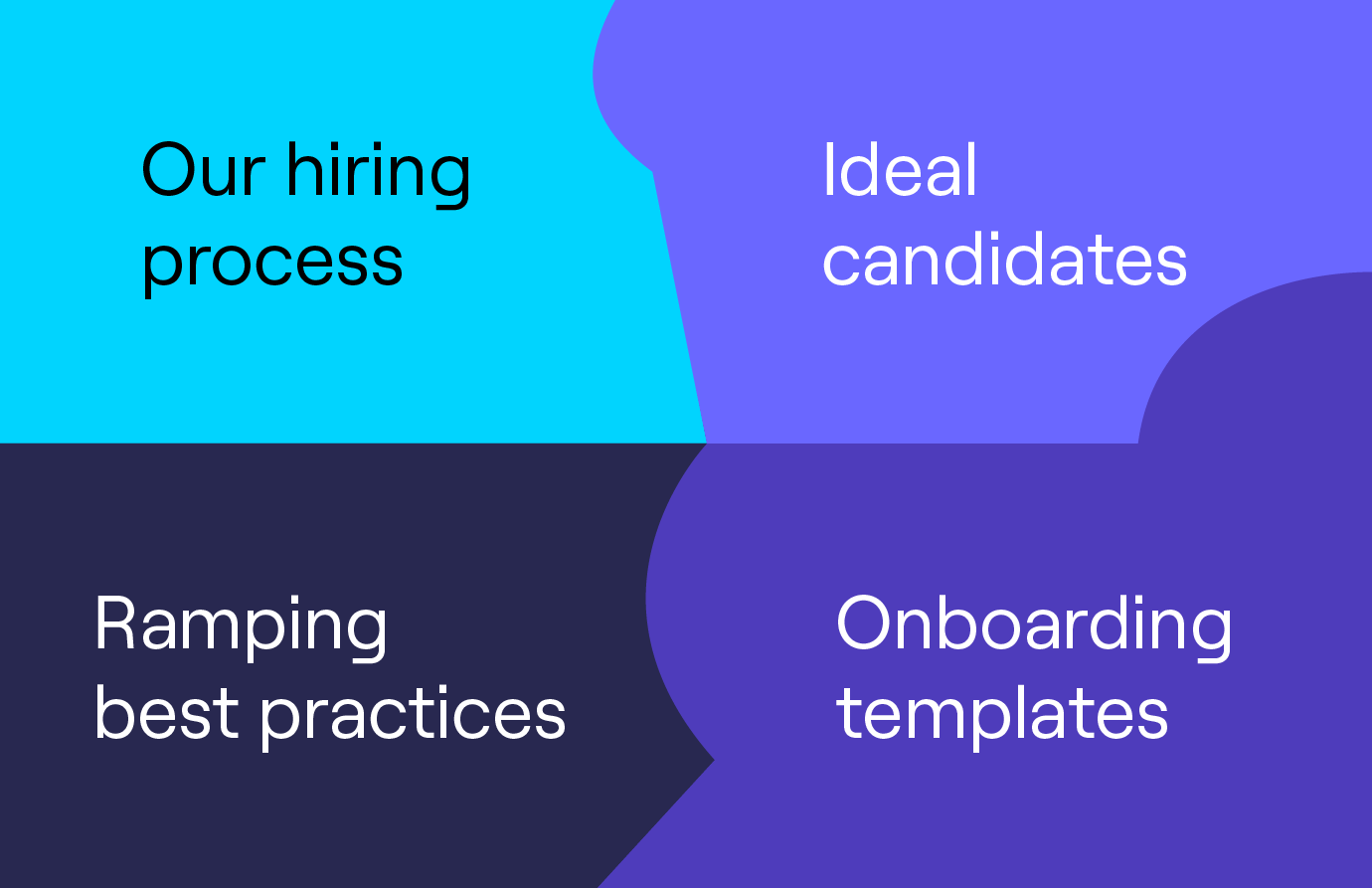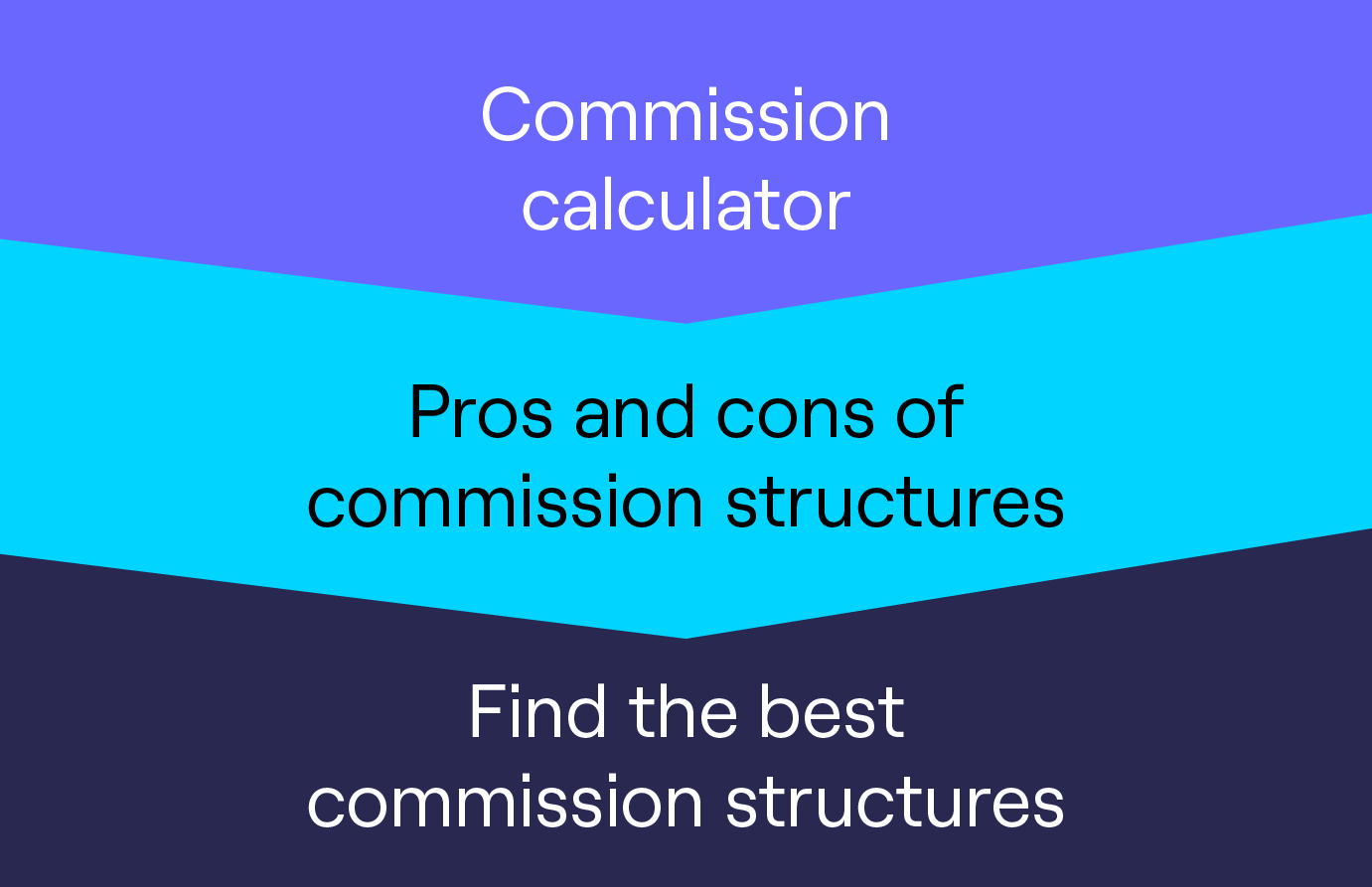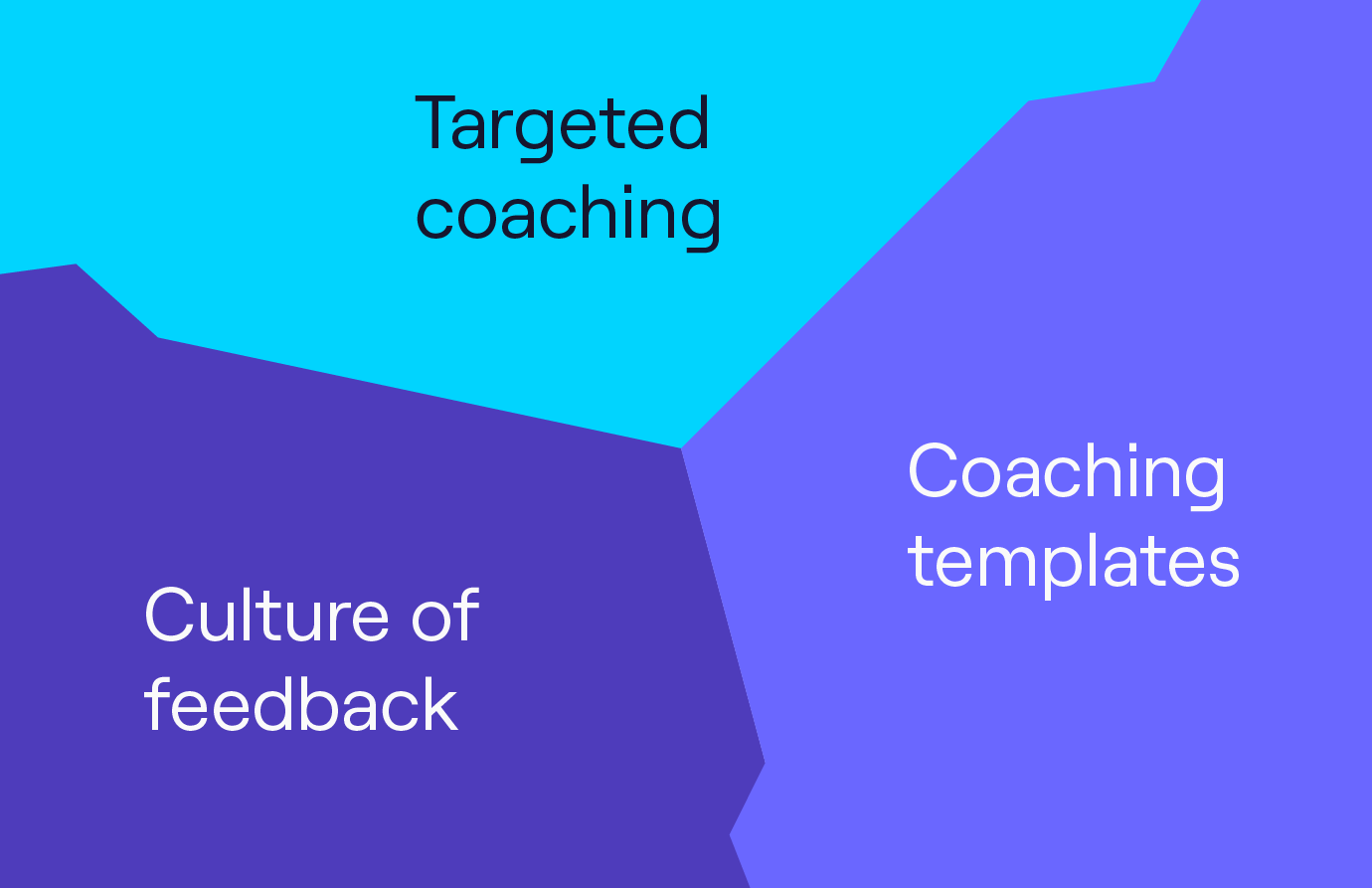The Blueprint
How to Hire & Ramp Your Sales Team Effectively
The sooner a new sales hire starts producing at full quota, the more revenue they’ll bring in over the course of the year.
This is our mindset, and the approach has paid off.
Last year, we hired 40 SDRs alone - with each one fully ramped after two months.
With that in mind, here is some tactical advice and information on how we’ve hired and ramped the sales team - at a productive and efficient pace.
Scroll for more 👇
1. The Hiring Process
To kick things off, let’s take a deep dive into our hiring process.
And don’t worry - it’s pretty easy to follow ⬇️
.png?width=650&height=245&name=Hiring%20%26%20Ramping%20Sales%20Team%20BIG%20ROCK-01%20(1).png)
We told you it was easy!
David Bentham, VP of Global Sales Development explains why:
“I’ve seen companies that have seven-step processes for entry-level roles. And the argument for this tends to be that it can make candidates have really good buy-in to the role.”
BUT on the flip side, you might end up losing candidates, because the process is too long - even demotivating. If your hiring process takes longer than a month, it's likely the candidate will have found somewhere else by the time the process has finished.
The bottom line?
Make the process seamless and easy for candidates - that’s the secret to quickly attracting the best talent.
Ultimately, this’ll ensure you’ve got to get the right people, in the right seats, quickly. And remember - every rep is your key to a successful pipeline.
Speaking of which, let’s talk about…
2. The Ideal SDR Candidate
During his tenure, David has managed over 200 reps. And from his experience, here are the core qualities that he looks for when hiring reps👇
.png?width=658&height=359&name=Hiring%20%26%20Ramping%20Sales%20Team%20BIG%20ROCK-02%20(1).png)
And if you're wondering what red-flags to be aware during the interview process, check out David's advice:
But for our sales leaders, it’s about going beyond covering the basics.
They’ve added a layer of sophistication when it comes to interviewing for SDRs, depending on the segment.
Jonathon Ilett, VP of Global Sales said:
“In terms of the general interview process, it depends on the segment we’re hiring for. On the one hand, the focus for commercial candidates is more volume-based. For example, are they able to manage the workload? Whereas for enterprise, the traits we look for are a lot more strategic.”
And when it comes to enterprise candidates?
Jon said:
“It’s more like a project management role. The rep is there to coordinate and bring the right people into the deal at the right time.”
Now, that’s a snapshot of how Cognism hires SDRs. How about the AEs?
3. The Ideal AE Candidate
The best AEs must be able to orchestrate the intricacies of an account. This becomes especially important at the enterprise level.
Jon shares why:
Jon emphasises that AEs need to advise who needs to be involved in the the buying process - especially when it comes to selling into enterprise organisations which typically have a larger pool of decision-makers.
Another quality Jon looks for in his AEs is proactiveness.
"Software purchases aren’t always a top priority with stakeholders, so the AE, once again, needs to be proactive and ensure it stays top of mind.”
Now, this is all well and good. But how have Cognism’s sales leaders managed to identify these skills during the interview process?
It all comes down to asking scenario-based questions.
Use the following questions to measure the skills of your AE candidates.
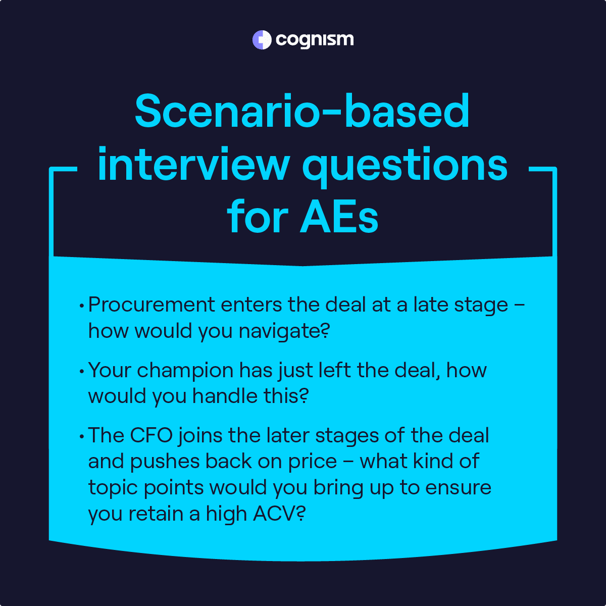
4. Onboarding & Ramping Best Practices
Now we’ve covered the basics, let's talk about how to operationalise your process around hiring and ramping.
For us, it's been crucial to have a plan for 30, 60 AND 90 days. This plan has been built and iterated by Rachel Goldstone, our Director of Sales Development.
This approach has meant that new SDRs at Cognism are up and running after just 1 month! As opposed to the industry average which is 3 months.
Here's an example timeline, before we get into more detail 👇
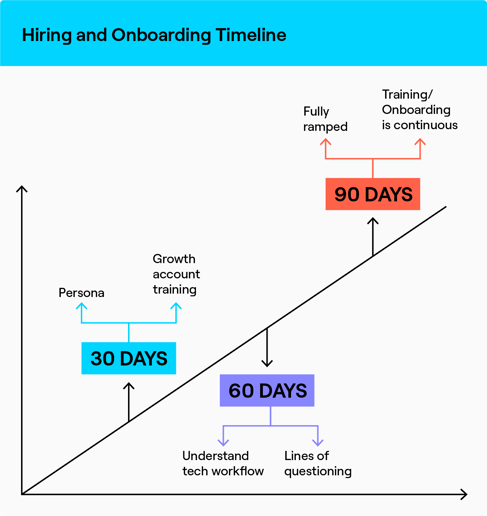
At...
30 days
SDRs should be able to:
- Understand objection handling
- Understand their workflow and timetable
- Understand personas and product
- How to populate and find new accounts
- Have undergone growth account training e.g. multi-threading
60 days
Reps should be able to:
- Provide lines of questioning
- Create emails e.g. follow-ups and cold outreach
- Craft outbound via LinkedIn
- Write and leverage notes
- Embrace the growth mindset
90 days
At this point, a rep is fully ramped.
But here's a word of warning
This plan is continuous. Your reps don't know everything about their role. Encourage them to always be learning. And ensure training is constant.
Templates
Speed up ramp time with this SDR training process.
Get your new SDRs up & running quickly and efficiently with this 2-week training plan!
Unsure on the qualities and skillset your next SDR should have?
Here is a checklist of the characteristics you should be looking for when hiring your next candidate.
Looking to ramp your reps to success, quickly?
Check out our full onboarding checklist for 15, 30, and the 60 day mark.
Unlock more insights from our Blueprint
Quality data to reach decision makers faster!
Get the contact data your team needs to make fewer calls, contact the most relevant people, and hit quota faster.
